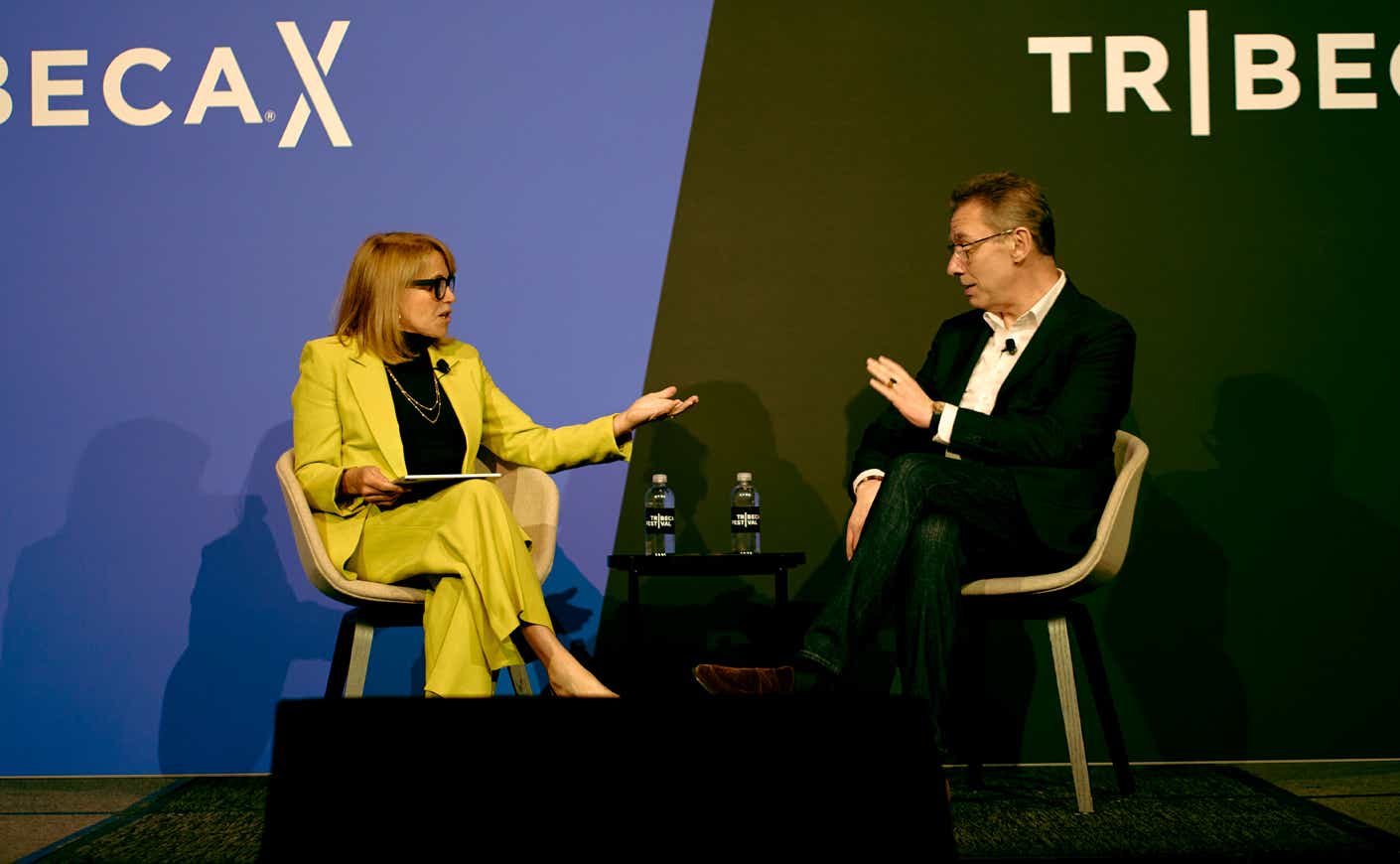The past five years have been a wild ride for Albert Bourla.
In 2019, he became Pfizer’s CEO. Then, the pandemic struck, and Bourla, a veterinarian who joined the pharmaceutical giant in 1993 as part of its animal health division, was suddenly flung into a race against the clock. At breakneck speed, Pfizer developed a Covid-19 vaccine, but then it was confronted with another intricate problem: Convincing the public the technology was safe.
This week at the Tribeca X festival, Katie interviewed Bourla about steering Pfizer through the pandemic, the promise of AI, and his next big undertaking — creating a new class of cancer drugs. Here are some of the highlights from their fascinating discussion.
Katie Couric: Can you talk about how challenging it was to develop a vaccine in record time?
Albert Bourla: To be successful, you need to be aligned. We needed to make sure that among the many technologies that exist, you pick the one most appropriate — in our case, the mRNA. We needed to make sure that we had a clinical development program in place to demonstrate efficacy at scale, very quickly. You need manufacturing. Our annual capacity for vaccines was 200 million doses — for all our vaccines, which took us years to learn how to make. In the first year of the pandemic, we moved from 200 million to 3 billion doses of a vaccine that was never produced before.
It was very difficult. But I would say the biggest challenge that we faced during that time was the politics — how coronavirus and then the vaccines became part of the political debate rather than part of the scientific debate.
You say the next big contribution to the world’s health will be to end cancer as we know it. Tell us how the acquisition of Seagen adds to Pfizer’s cancer-fighting arsenal.
We made a very, very big acquisition. It was basically a bet on one new technology called ADC, antibody-drug conjugate. The concept is that the antibody is like a GPS-guided missile and is programmed to find the cancer cells, and the drug is the warhead. So instead of giving chemotherapy, which kills the cancer cells but at the same time kills healthy cells, you give the chemotherapy combined with an antibody. So, it circulates throughout the body, and once it locks onto a cell programmed to target, it releases the drug. So, there’s far less collateral damage than traditional chemotherapy. The other benefit is that you can change the antibody from targeting breast cancer to cells in the lung or the brain.
We bet on this — it doesn’t mean it will 100 percent work, but we’re very confident that it will make a difference.
Do you think AI will help speed the research and development process and reduce the price of drugs globally?
I’m completely convinced that AI will transform the way that we do drug development and discovery. I think when we combine the progress we’re seeing in biology with the progress in technology, it will unlock solutions that we’ve never even dreamed of before. I’ll give you an example: The discovery period for a drug like Paxlovid would usually take four years. You make 3 million molecules, and you sift through them to find the one that works. With Paxlovid, we used AI, and instead of making 3 million, we designed 600 molecules, which our scientists felt had the highest probability of success. We tested those, and it took us four months instead of four years to find the right one.
This interview has been edited and condensed for clarity.









